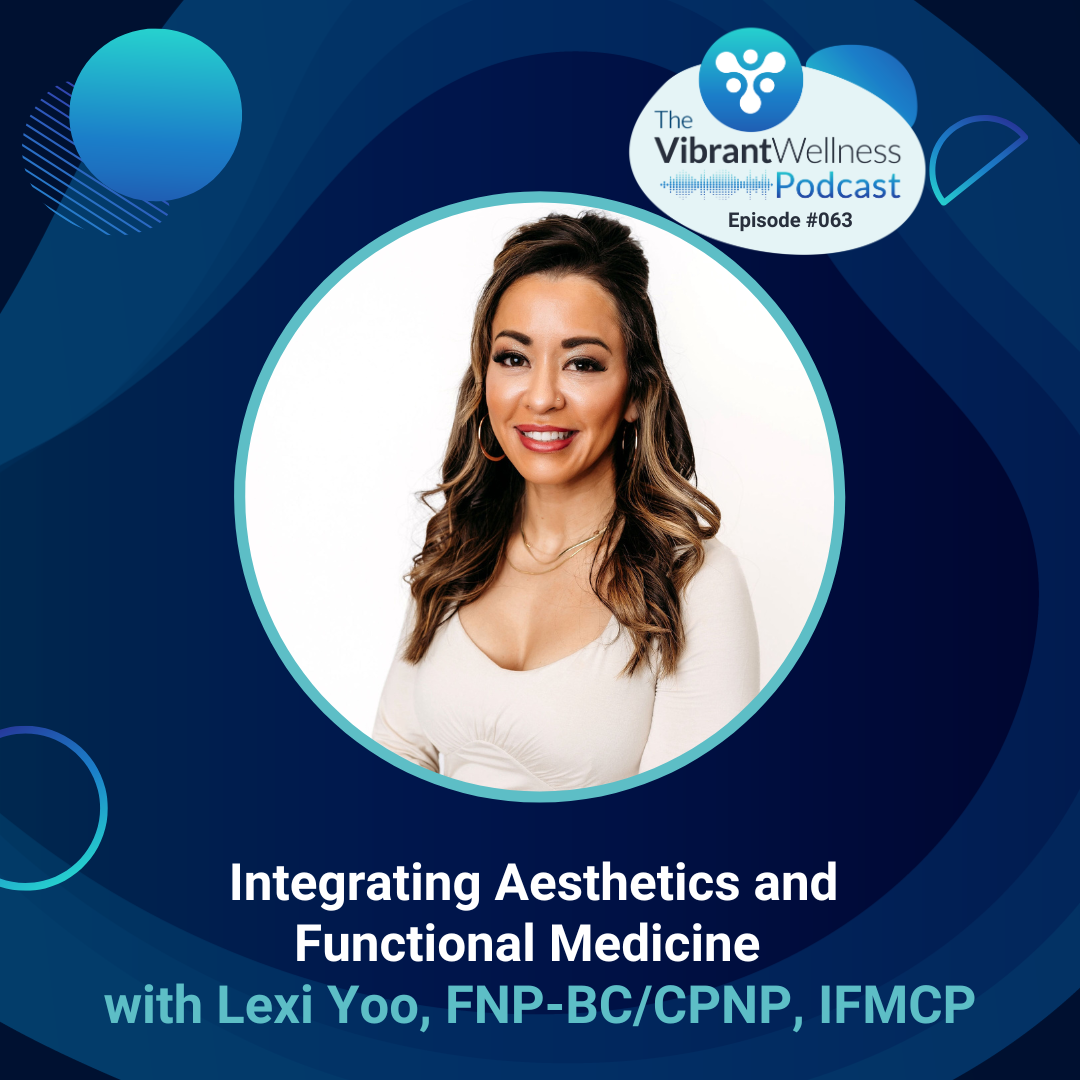A Holistic Approach to Health
In recent years, there’s been a growing interest in functional medicine as a complement to traditional medicine. An unhealthy gut and hormone imbalances can lead to various symptoms such as upset stomach, unintentional weight changes, and autoimmune conditions, impacting the body’s ability to process food, eliminate waste, and regulate important functions like blood sugar and inflammation. These conditions can also lead to issues such as fatigue, skin conditions, and autoimmune challenges. While traditional medicine focuses on diagnosing and treating diseases primarily through medications, surgeries, and other conventional methods, functional medicine takes a more holistic approach, seeking to understand and address the root causes of health issues, including those related to digestive health. This approach also emphasizes the importance of gut health, recognizing how it impacts overall well-being and the management of food intolerances. Combining these two approaches can lead to a more comprehensive and personalized healthcare experience. Here’s how functional medicine can complement traditional medicine.
Understanding Functional Medicine
Functional medicine is a systems biology-based approach that focuses on identifying and addressing the root causes of disease. Peptides, which are naturally occurring substances, play a significant role in medical treatments and supplements for conditions like anti-aging, muscle growth, fat loss, hair growth, and bone density improvement. Peptide therapy can influence bodily functions and improve health outcomes, benefiting strength, body composition, recovery, repair, skin texture, libido and other cell signaling processes. It views the body as an interconnected whole, where amino acids play a crucial role in various bodily functions such as digestion, energy usage, hormone regulation, and cell movement. Additionally, a balance of good gut bacteria are essential for maintaining overall health, impacting sleep, fatigue, gut health, mood, metabolic function, and inflammation. This approach emphasizes the importance of lifestyle factors, such as diet, exercise, sleep, stress management, and mental health, in maintaining overall wellness.
Key Principles of Functional Medicine: Lifestyle and Diet Changes
- Individualized Care: Functional medicine practitioners tailor their treatments to the individual, considering genetic, environmental, and lifestyle factors.
- Patient-Centered Approach: The patient is an active partner in their care, and their preferences and experiences are central to the treatment plan.
- Holistic View: Instead of treating symptoms in isolation, functional medicine looks at how different systems in the body interact and influence each other. Eating slowly and chewing food thoroughly can improve digestive health, reduce digestive discomfort, and maintain a healthy gut. Additionally, eating slowly and thoroughly chewing food can reduce the risk of obesity and diabetes, and promote better food choices, we call these downstream effects.
How Functional Medicine Complements Traditional Medicine
- Preventive Care: Traditional medicine excels in acute care and managing symptoms, but functional medicine’s focus on preventive care helps identify potential health issues, such as the body’s ability to absorb nutrients, before they become serious. This proactive approach can reduce the incidence of chronic diseases.
- Chronic Disease Management: For conditions like diabetes, heart disease, and autoimmune disorders, traditional medicine often relies on medication to manage symptoms. Functional medicine complements this by addressing lifestyle and environmental factors that contribute to these diseases, potentially reducing the need for medication and improving quality of life. Additionally, growth hormone can play a role in managing chronic diseases by supporting muscle growth and overall health.
- Personalized Treatment Plans: Functional medicine’s emphasis on individualized care means treatments are tailored to the specific needs of the patient. This personalized approach can lead to more effective outcomes, especially when combined with traditional medical treatments. Peptides, which are short protein chains of about 2-100 amino acids, have been used in medicines for about 100 years and can offer benefits such as anti-aging, muscle growth, and fat loss. Peptide drugs are well-researched, FDA-approved, and more regulated than supplements or cosmetics, highlighting their significance in modern medicine.
- Whole-Person Approach: While traditional medicine focuses on specific organs or systems, functional medicine looks at the body as a whole. This holistic view can uncover connections between seemingly unrelated symptoms and lead to more comprehensive treatment strategies.
- Enhancing Patient Engagement: Functional medicine’s patient-centered approach encourages active participation in healthcare decisions. This engagement can lead to better adherence to treatment plans and a greater sense of control over one’s health.
- Nutritional and Lifestyle Guidance: Traditional medicine often doesn’t have the time or resources to deeply explore nutrition and lifestyle factors. Functional medicine fills this gap by providing detailed guidance on lifestyle and diet changes, including diet, exercise, sleep, and stress management, which are crucial for overall health. Additionally, eating slowly and chewing food thoroughly can help reduce digestive discomfort, further supporting a healthy gut.

Real-World Applications of Functional Medicine
Patient Education: Educating patients about the benefits of combining both approaches can empower them to make informed decisions about their health and encourage them to take a more active role in their care. Functional medicine also emphasizes the connection between gut health and skin health, which can be particularly beneficial for patients with skin conditions.
Research and Evidence-Based Practice: Ongoing research into the benefits of functional medicine, including the development of peptide drugs, can provide a solid evidence base, helping to integrate these practices more seamlessly with traditional medicine. Peptides, such as copper peptides and palmitoyl pentapeptide-4 (Matrixyl), are used in skin care products to improve skin moisture, elasticity, and thickness. Additionally, antimicrobial peptides (AMPs) play a role in fighting bacteria, healing wounds, and building a strong skin barrier, which is essential for overall skin health.
Conclusion: Implications for Human Longevity
The synergy between functional and traditional medicine offers a promising path forward for healthcare. By combining the strengths of both approaches, patients can achieve better health outcomes, enjoy a higher quality of life, and take a more proactive role in managing their health. This holistic, personalized approach is the future of medicine, providing a comprehensive and compassionate framework for healing and wellness.
As the healthcare landscape continues to evolve, embracing the complementary strengths of functional and traditional medicine will be key to addressing the complex health challenges of our time. Whether you’re a patient, a healthcare provider, or simply someone interested in optimal health, understanding and utilizing both approaches can lead to a more balanced and effective path to wellness.
Learn more about Functional Medicine through the Institute for Functional Medicine and find a functional medicine provider near you.

Listen to our own, Lexi Yoo, featured on the Vibrant Wellness Podcast!



